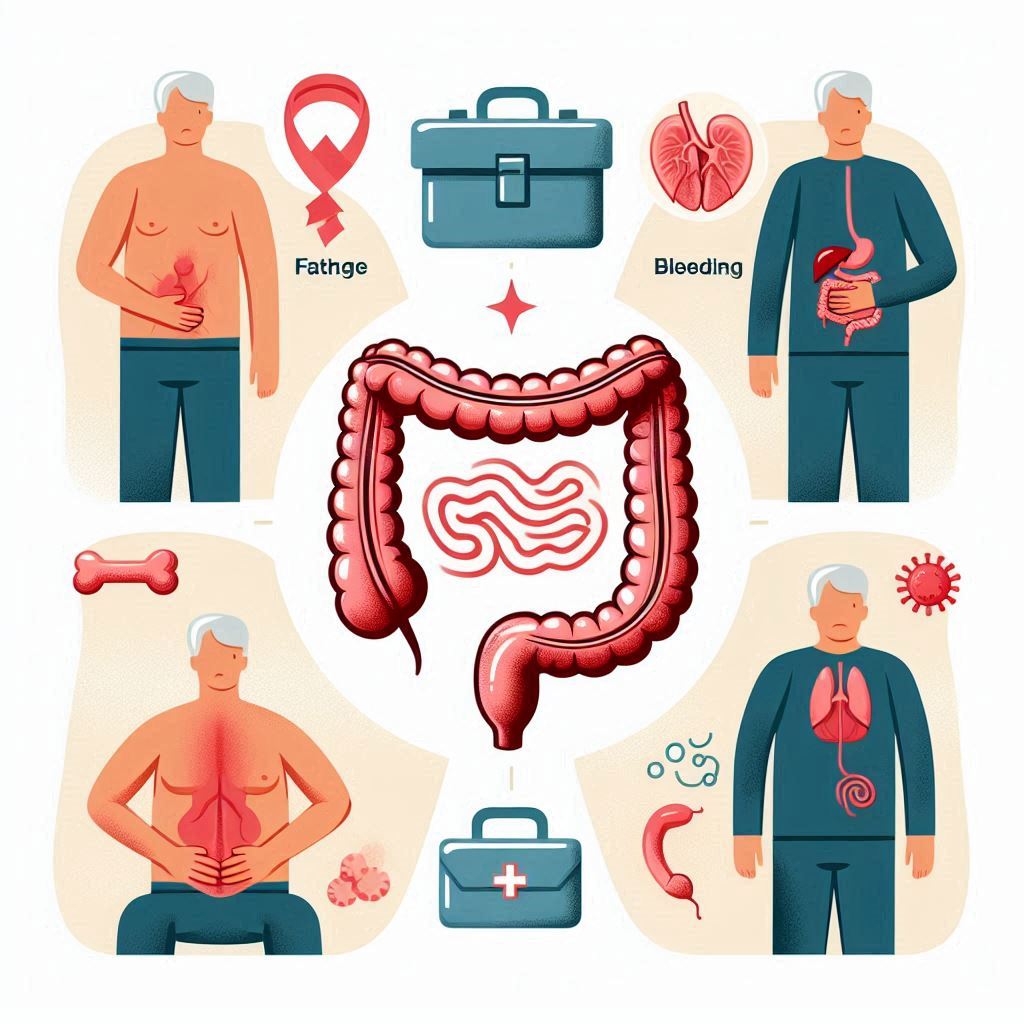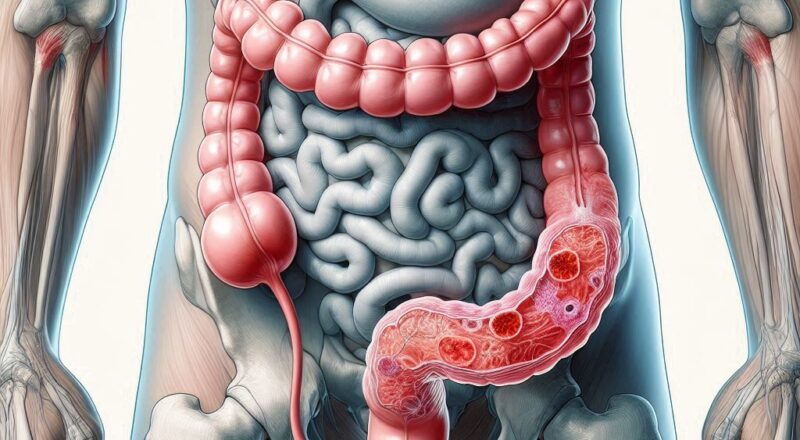August 8, 2024 – Colon cancer is a serious disease that affects many people worldwide. Early detection is key to successful treatment. Knowing the symptoms can help you recognize the disease early. Here are some common signs of colon cancer and why they should not be ignored.
Fatigue
One of the first symptoms of colon cancer is fatigue. This is not just feeling tired after a long day. It is a constant feeling of being worn out and having no energy. Fatigue in colon cancer happens because the body uses a lot of energy to fight the disease. Cancer can also cause bleeding inside the colon, leading to anemia. Anemia is a condition where you do not have enough red blood cells to carry oxygen throughout your body. This can make you feel very tired and weak.
If you feel extremely tired all the time, it is important to talk to your doctor. Fatigue can be caused by many things, but it is always good to get it checked out.
Bleeding
Bleeding from the rectum is another common symptom of colon cancer. You might notice blood in your stool. The blood can be bright red or dark in color. Sometimes, you might not see any blood, but a test for hidden blood in your stool can show it.
Bleeding can be a sign of other conditions, like hemorrhoids or an anal fissure. But it is important not to ignore it. If you notice any bleeding, see your doctor as soon as possible. They can do tests to find out what is causing the bleeding.
Weight Loss
Unexplained weight loss is a symptom of many types of cancer, including colon cancer. If you are losing weight without trying, it could be a sign that something is wrong. Cancer can change the way your body uses food for energy. It can also cause a loss of appetite.
If you notice that you are losing weight and you do not know why, it is important to see your doctor. They can run tests to find out the cause of your weight loss.

Changes in Bowel Habits
Unexplained weight loss is a symptom of many types of cancer, including colon cancer. If you are losing weight without trying, it could be a sign that something is wrong. Cancer can change the way your body uses food for energy. It can also cause a loss of appetite.
If you notice that you are losing weight and you do not know why, it is important to see your doctor. They can run tests to find out the cause of your weight loss.
Abdominal Pain and Cramps
Another symptom of colon cancer is abdominal pain and cramps. You might feel pain or discomfort in your stomach area. This can be caused by a tumor blocking your colon. The pain can be sharp or dull and can come and go.
If you have persistent abdominal pain or cramps, it is important to see your doctor. They can do tests to find out what is causing the pain.
Feeling that Your Bowel Does Not Empty Completely
Some people with colon cancer feel like their bowel does not empty completely after a bowel movement. This can be an uncomfortable and frustrating feeling. It can happen if a tumor is blocking part of the colon.
If you have this feeling often, talk to your doctor. They can check to see if it is a symptom of colon cancer or another condition.
Causes and Risk Factors
The exact cause of colon cancer is not known, but there are several risk factors. These include:
- Age: Most people diagnosed with colon cancer are over 50 years old.
- Family History: If you have a family history of colon cancer or polyps, you are at higher risk.
- Diet: A diet high in red and processed meats can increase your risk.
- Lifestyle: Lack of physical activity, obesity, smoking, and heavy alcohol use can also increase your risk.
- Medical Conditions: Conditions like inflammatory bowel disease (IBD), including Crohn’s disease and ulcerative colitis, can increase your risk.
Diagnosis
If you have symptoms of colon cancer, your doctor will do several tests to diagnose it. These might include:
- Colonoscopy: A procedure where a long, flexible tube with a camera is used to look inside your colon.
- Stool Tests: These tests check for blood in your stool.
- Blood Tests: These can check for anemia and other signs of cancer.
- Imaging Tests: These might include CT scans or MRI scans to look for tumors.
Treatment
The treatment for colon cancer depends on the stage of the disease. Common treatments include:
- Surgery: Removing the tumor and some surrounding tissue.
- Chemotherapy: Using drugs to kill cancer cells.
- Radiation Therapy: Using high-energy rays to kill cancer cells.
- Targeted Therapy: Using drugs that target specific parts of cancer cells.
- Immunotherapy: Using the body’s immune system to fight cancer.
There are several steps you can take to lower your risk of colon cancer:
- Regular Screenings: Get regular screenings starting at age 45 or earlier if you have a family history.
- Healthy Diet: Eat a diet rich in fruits, vegetables, and whole grains.
- Physical Activity: Stay active and maintain a healthy weight.
- Limit Alcohol and Avoid Smoking: Limit your alcohol intake and avoid smoking.
Colon cancer is a serious disease, but early detection can make a big difference. Knowing the symptoms can help you catch it early. If you notice fatigue, bleeding, weight loss, or other changes in your health, do not ignore them. Talk to your doctor about your symptoms. Regular screenings and a healthy lifestyle can also help lower your risk. Taking these steps can help you stay healthy and catch any problems early.
